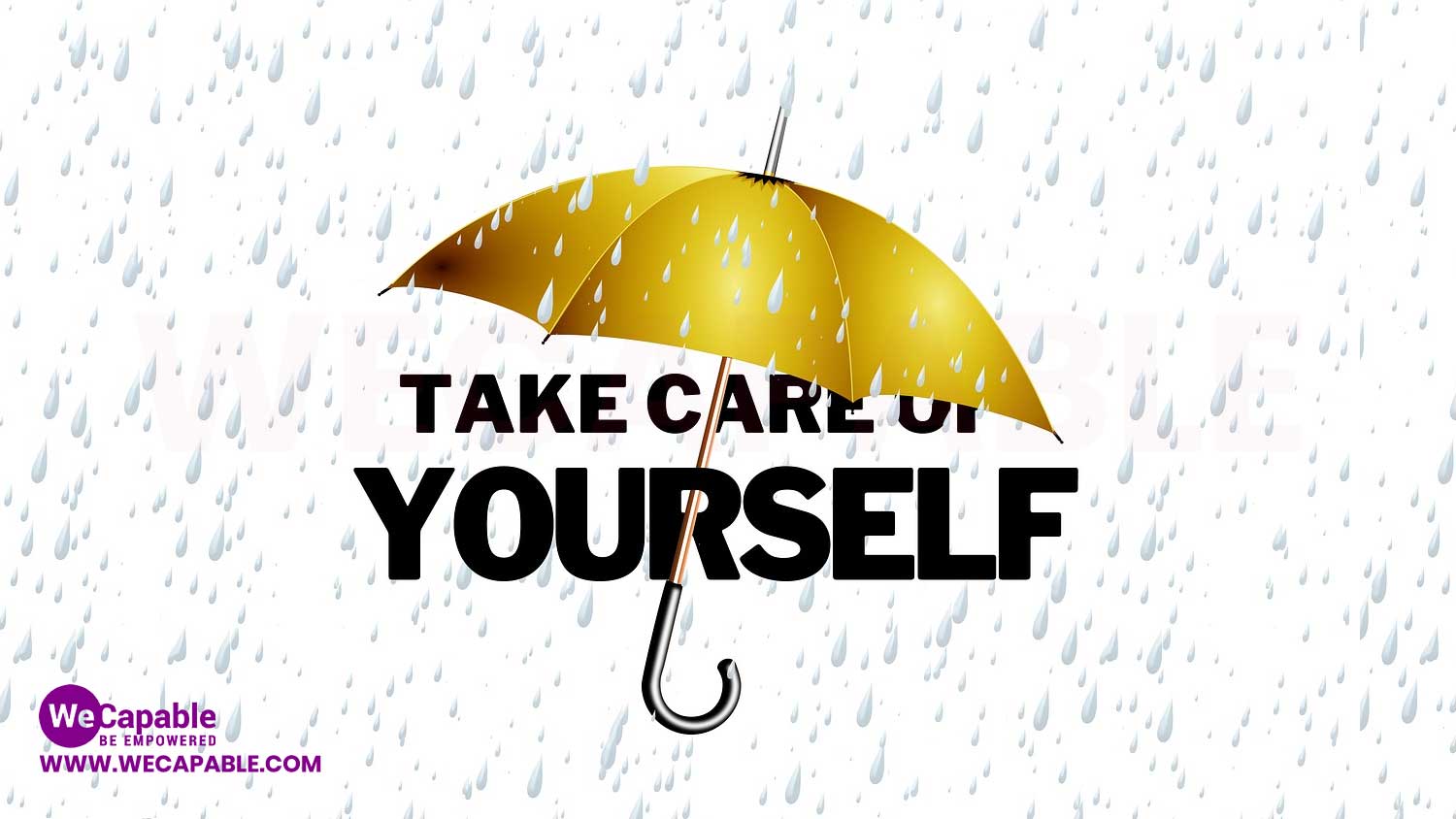Self-care starts with self-love. And, self-love starts with self-acceptance. The part of self-acceptance does not come very easily to persons with disabilities because of various reasons including societal perspectives.
In this write-up, we are discussing various self-care tips that can help you be your best version. But, before you can include these habits in your routine you need to change your mindset and start loving yourself. Unless you don’t accept yourself completely and love yourself for what you are, you won’t feel comfortable taking care of yourself.
So, begin with self-acceptance and self-love.
Why Self-Care is Important?
You might be wondering, why we put so much emphasis on things like self-acceptance, self-love, and self-care. Before we give you tips on self-care, let us briefly discuss the importance of self-care.
Caring for oneself is necessary for better physical, mental, and emotional health. It is also important for keeping us happy, positive, and enthusiastic about life.
Here we are making a discussion specifically about persons with disabilities because reports suggest that people with disabilities experience mental distress at least 5 times more than the average able-bodied person. Physical health too tends to deteriorate more rapidly in persons with disabilities as compared to their counterparts without disabilities living a similar lifestyle. So, self-care becomes more important for persons with disabilities.
Self-care has numerous benefits including, but not limited to –
- Self-care improves physical, mental, and emotional health.
- Self-care helps manage stress and stressful situations better.
- Self-care keeps us energetic and enthusiastic.
- Self-care lowers the risk of illness.
- Self-care makes us more mindful of our own needs.
Self-Care Tips for Persons with Disabilities
1. Meditate
The best self-care tip you can get for your mental peace is to meditate. Meditation is the best way to relax your mind and body. And, this should be done daily. You can choose any technique of meditation and you can also choose the best-suited time for yourself but remember to do it daily.
2. Rearrange and Reorganize Your Home to be More Accessible
Rearranging things brings a feeling of newness which in turn makes us feel good. You can leverage the double benefit of reorganizing your home to be more accessible. We have trained ourselves to arrange and decorate our homes to look good. As a person with a disability, you should be more conscious about arranging your home from the viewpoint of usability and accessibility. An accessible home will give you more independence and happiness.
3. Do Some Stretches and Light Exercises
No self-care routine is as beneficial for physical and mental health as regular exercise. We aren’t asking you to go to a gym and do a full session of exercise (you can do that too if you like). Just including a few stretches and light exercises in your daily routine can help you take care of yourself. Always remember, consistency is more important than the intensity of the exercise.
4. Indulge in a Little Pampering Session
Take a break from all the chores and responsibilities of the world for a while and pamper yourself. You may get a relaxing massage, cook or eat your favorite meal, watch a movie, make a painting, or do anything that makes you feel happy and pampered. A pampering session is a dedicated time when you make yourself feel like the most important and loved person.
5. Respect Your Limits
Self-care is not always about doing something; it may sometimes mean not doing something. Persons with disabilities, many a time, go the extra mile in proving their worth. Don’t overwork yourself for proving a point to anyone. Understand the signs of your body when it gets tired and respect your limits by pausing where it’s needed.
6. Have Lots of Fun with Others
Socializing in a healthy way is an important way of caring for self. Most of the self-care tips are such that they encourage you to spend time with yourself. But, spending fulfilling time with others is also important for human beings as we are naturally wired to be social beings. Persons with disabilities tend to have a lesser social life. You need to change it. Search for occasions where you can socialize and have fun with others.
Conclusion
There is no one-size-fits-all strategy for self-care. For some reading a book may be more fulfilling, for others, it might be having fun with friends. So, you need to design and determine your own self-care rituals. The only thing you need to remember is to ask yourself daily and answer honestly, what you did today for yourself. This could be anything for your physical health, mental health, or emotional health. Start caring for yourself as you would do for a loved one.
Use the citation below to add this article to your bibliography
"Self-Care Tips Every Person with Disabilities Needs to Know." Wecapable.com. Web. June 18, 2025. <https://wecapable.com/self-care-tips/>
Wecapable.com, "Self-Care Tips Every Person with Disabilities Needs to Know." Accessed June 18, 2025. https://wecapable.com/self-care-tips/
"Self-Care Tips Every Person with Disabilities Needs to Know." (n.d.). Wecapable.com. Retrieved June 18, 2025 from https://wecapable.com/self-care-tips/


Leave a Reply